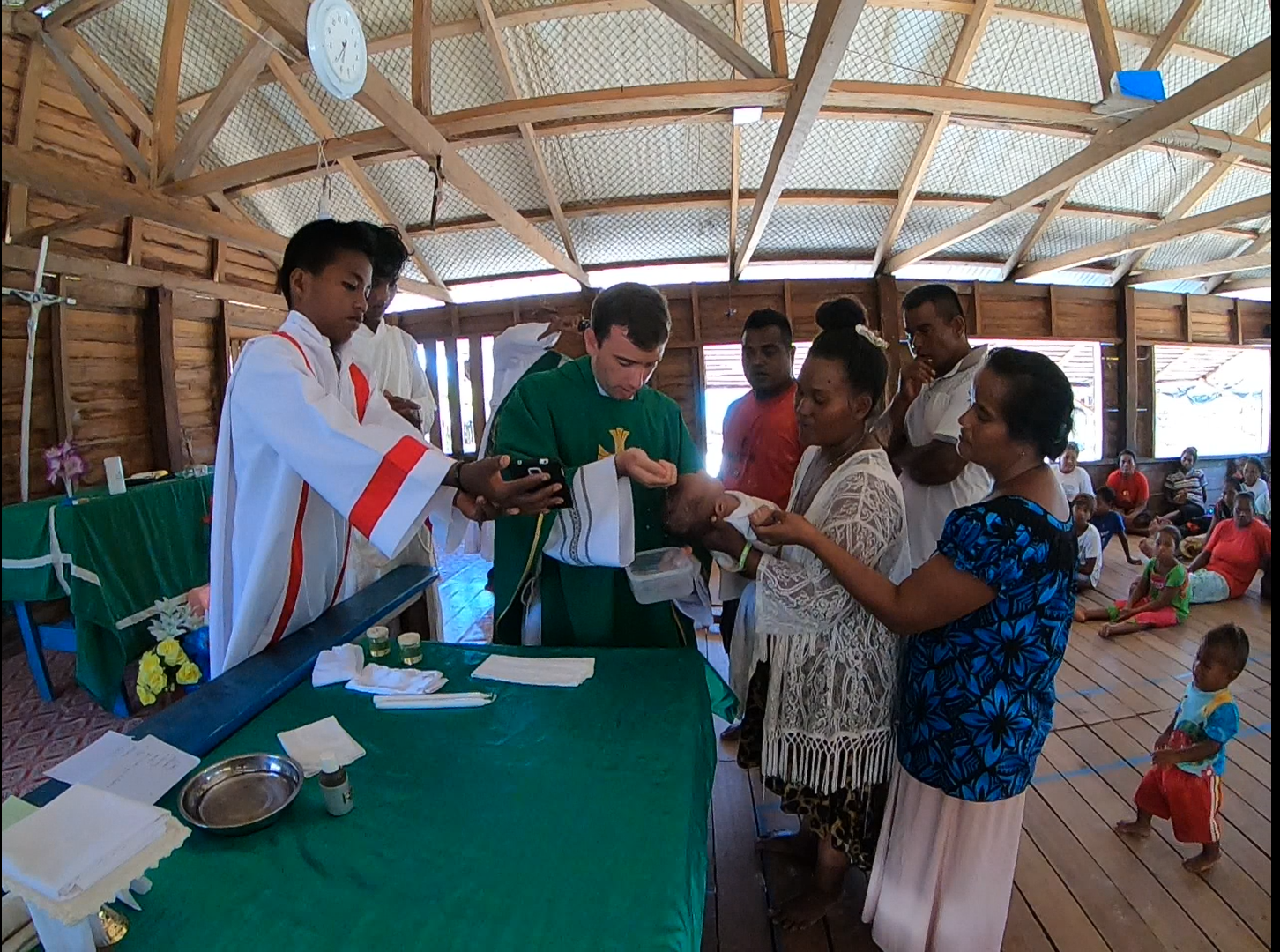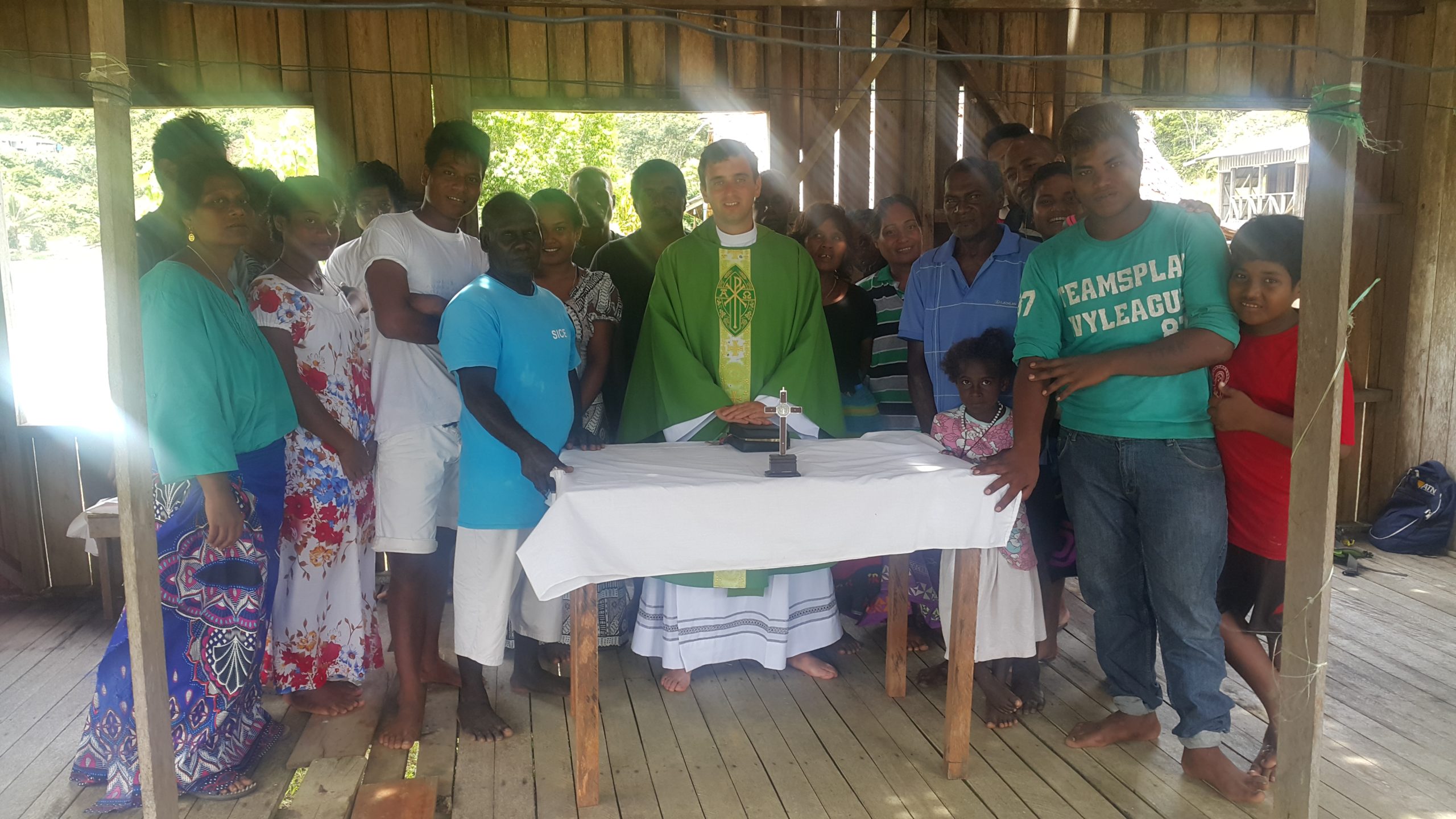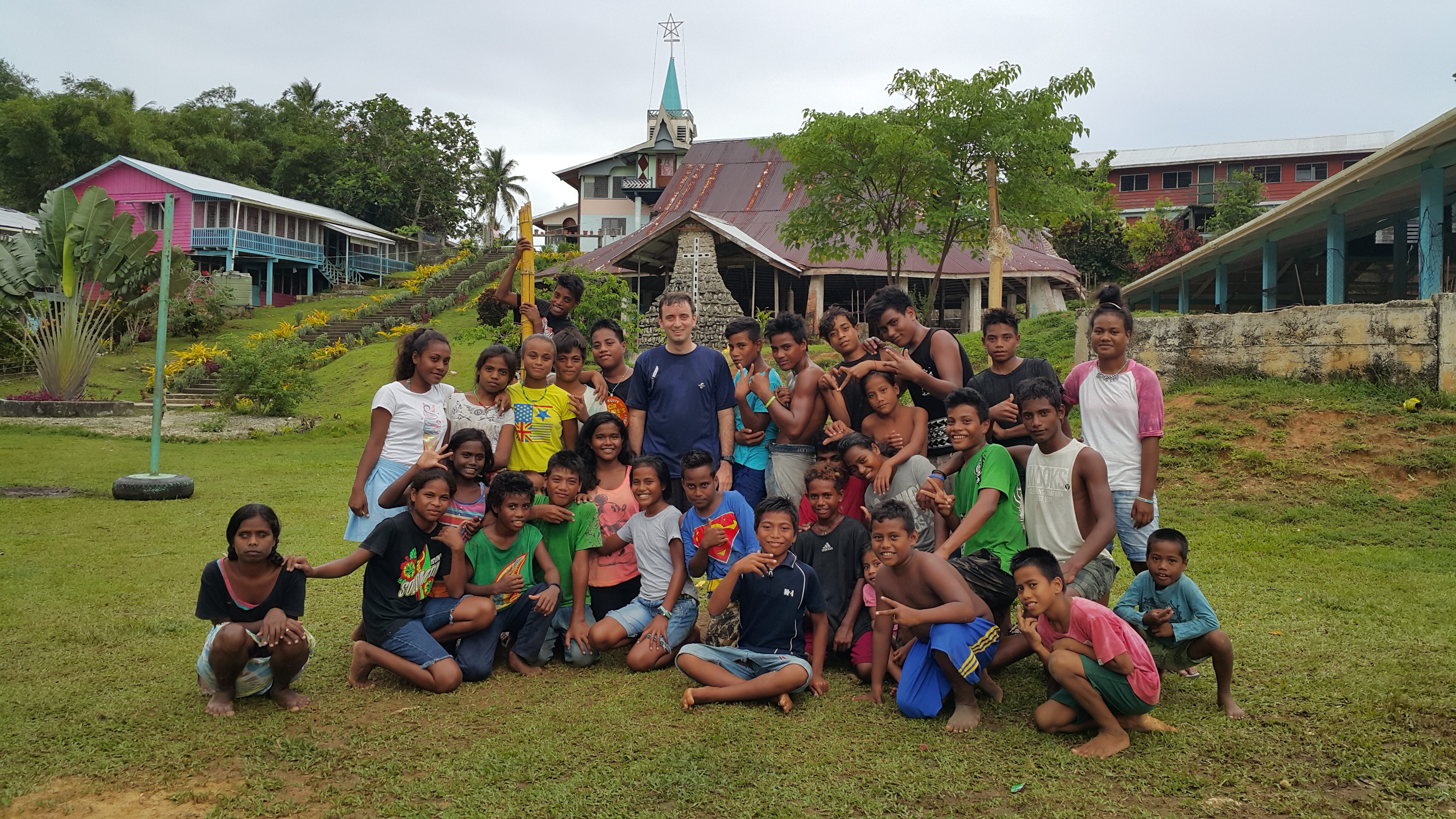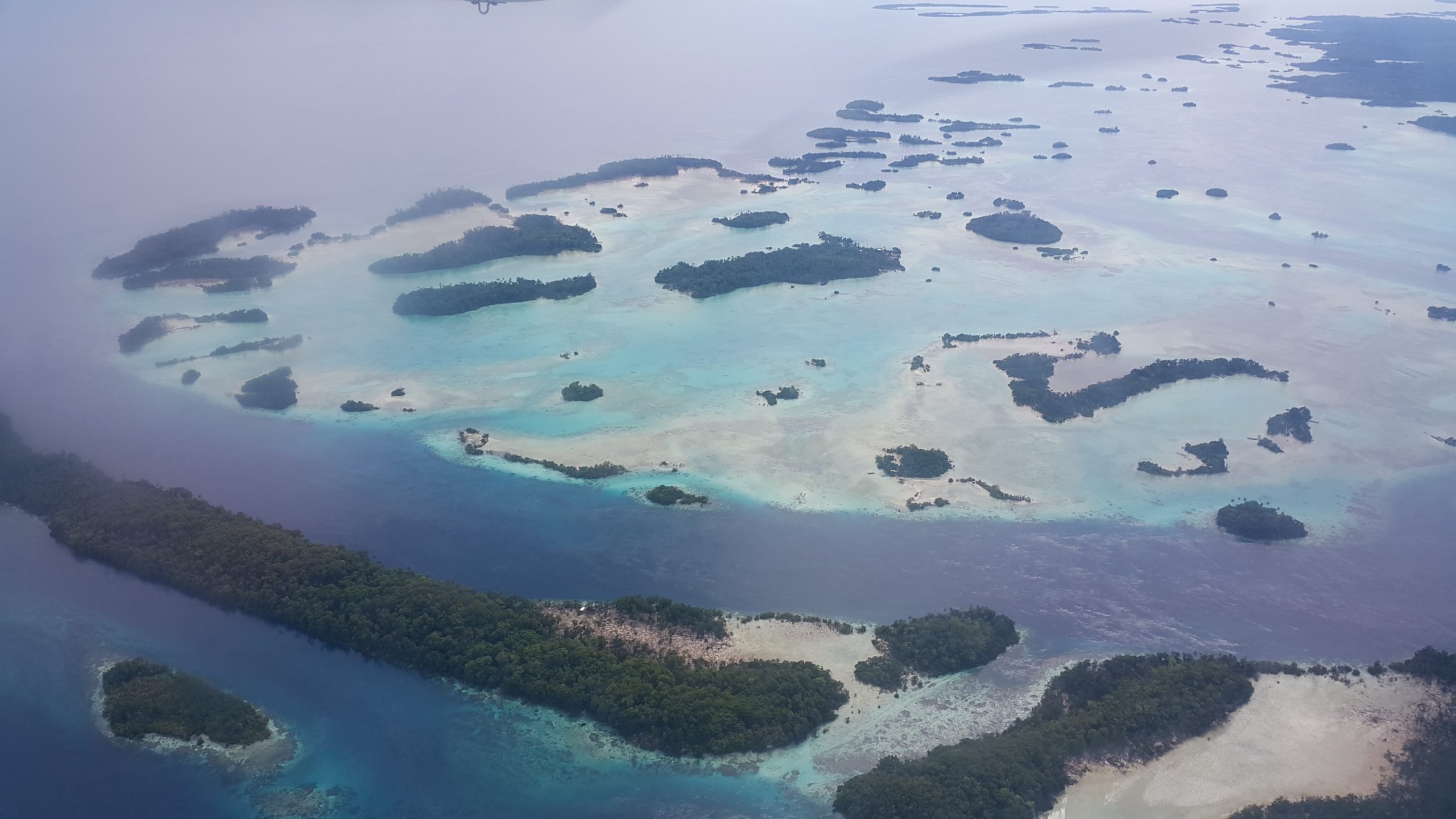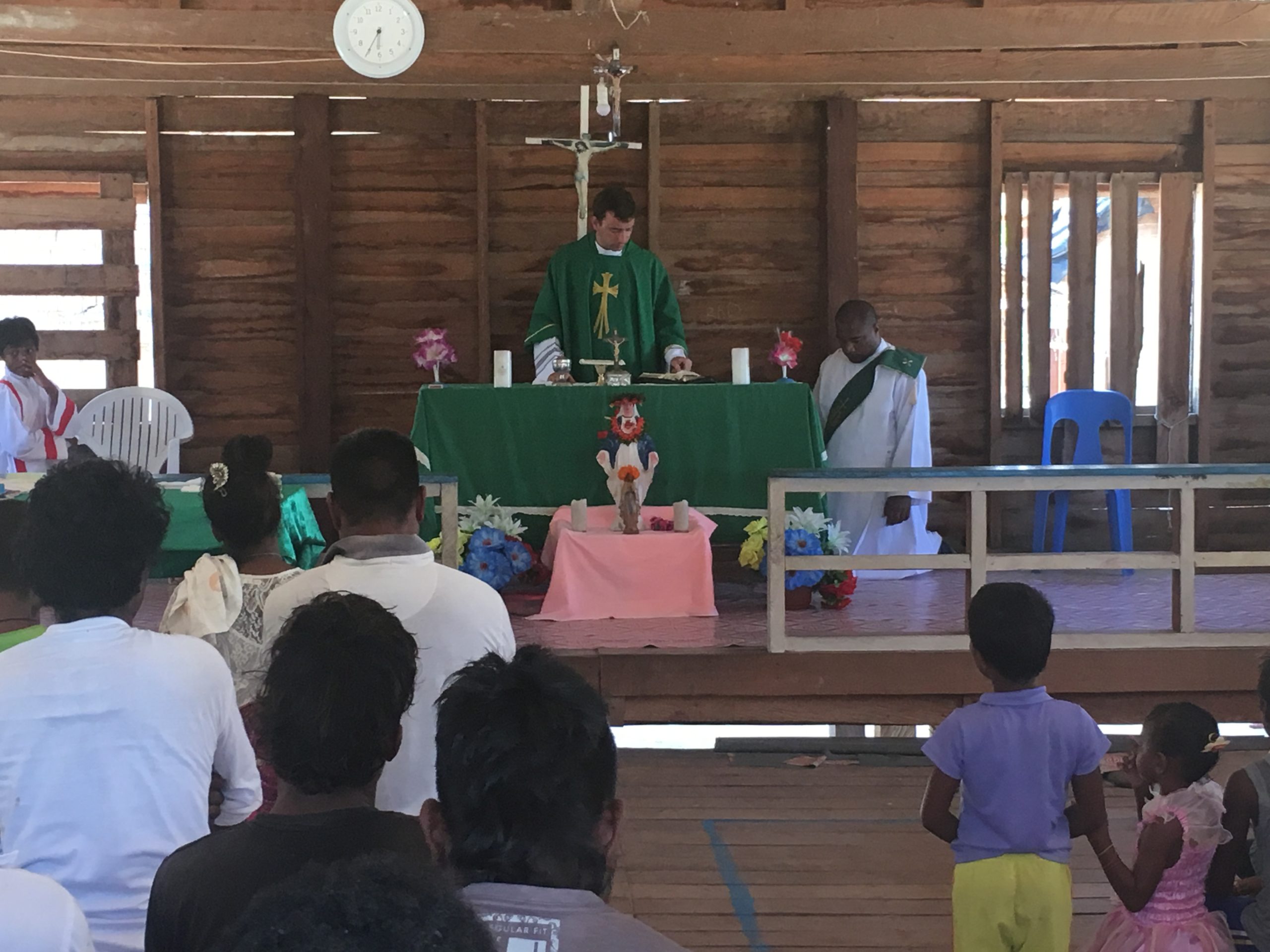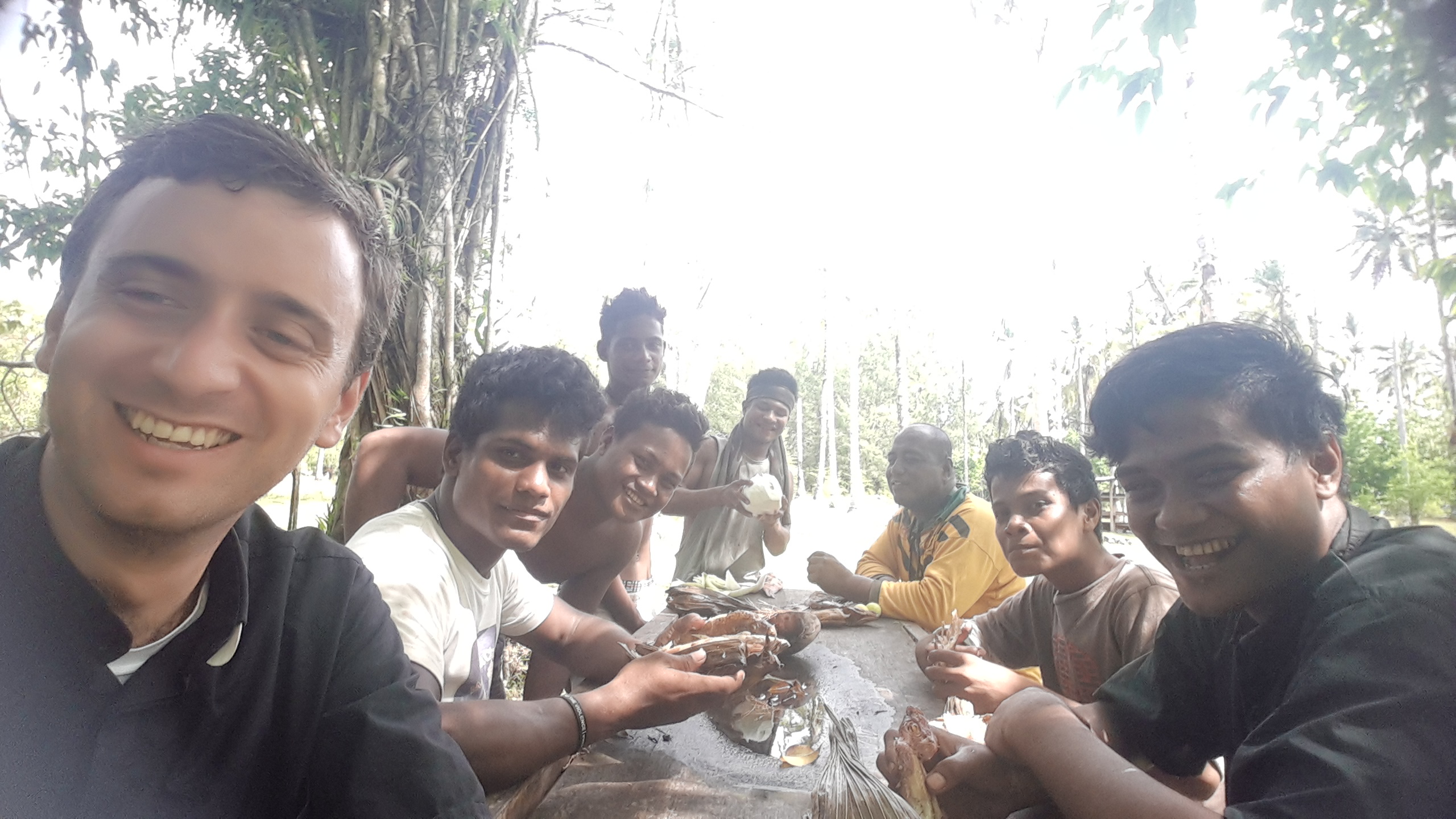Dear all, This last part of the Solomon Islands Chronicles. It is basically, a three-part reflection. It is, actually, three Good Nights I was able to preach at our Seminary of Lipa . I hope it is useful for you all!
1. A unique privilege
Fr. Segundo Llorente was a great missionary. He spent more than 40 years in Alaska going from one place to another visiting huts, small villages and towns. Amid cruel and deadly storms, ceaselessly snows and unending journeys, this Jesuit priest conquered the artic world for Our Savior. And although he suffered what is inexpressible, still he said and repeated many times that missionary life is a privilege.
Missionary vocation is a very especial grace, an unmerited grace that God gives to the missionary. God wants, because of this favor, that the missionary may give him also special proofs of love and fidelity, proofs which God would have not asked him unless he called him to mission1.
Missionary life is a wonderful grace of God given to certain souls, to which He gives the honor and duty to extend His redemption until the farthest corners of the earth.
We can say then, without fear of committing mistake, that no one deserves to be a missionary, because no one deserves to do the highest and noblest of all works, which is the salvation of souls. Fr. Nieto says in one of his letters:
An authentic missionary of the Incarnate Word knows that he has been chosen, taken from among men for the most honorable mission of ‘being instruments of salvation’. Because he is convinced that ‘he does not work for ephemeral or fleeting thing, but for the most divine work among the divine ones, which is the eternal salvation of souls’2.
* * *
I had heard these things many times, but after going and spending one month in our wonderful mission of Wagina, Solomon Islands, I can say that these words have really become flesh. To be a missionary is a privilege… an unmerited grace.
During the so many times I journeyed through that deep blue, light blue and turquoise sea I realized that I didn’t deserved to be there bringing Christ to those people, bringing the sacraments and the entire Church to them who live in small huts scattered among paradisiac islands.
I felt that the work given to me was beyond my capacities or, better to say, that it implied an honor and distinction totally unique, very special and particular, which I didn’t deserve at all. When I was celebrating the Mass in Tecos or in Sarana or when I baptized the new born Paul in Beniamina, I realized that I was fulfilling the words of Jesus quite literally, because He commanded us to baptize and preach the Gospel to all nations until the ends of the world… And all that area of Choiseul Province is exactly the finis terrae.
When Jesus uttered these magnificent words: “Go into all the world and preach the gospel to all creation” (Mk 16,15), He might have thought about Wagina Island, where the Pacific Ocean opens wide its arms embracing the vastness and solitude of the eternal seas, and mingles its blues with the blues of the sky. Who can say that is worthy enough to fulfill Jesus’ words so literally?
And also, who can consider himself ready to preach the word of God, to teach the Catechism or administer the sacraments? Who can say that he deserves to be the ambassador of God to those simple yet strong people of Kiribati? Can somebody rightly say that he merits to be sent to the mission, to Solomon Islands?
To St. Paul it was prophesied that he would be the light to the Gentiles and bring salvation to the ends of the earth (Acts 13, 47). He did so, with his writing and teachings and by arriving to the Iberian Peninsula, but we have done it much more literally… Does somebody have the right to such an honor?
Missionary life is an adventure, not only for the body but also for the soul, whose benefits redound in favor of the people, but also, and very especially, in favor of the missionary himself, because faith is strengthened when it is given to others. Indeed, the missionary has countless opportunities to grow in holiness promptly and easily, because the very fact of fulfilling the duties of the missionary life, fosters and smoothens the path to heaven in an incredible way.
What a great privilege the missionary has! He is the apple of God’s eye. So easy to be holy…. He has a wonderful enterprise.
Mary was an extraordinary missionary… to her we ask to live up to the given task.
2. Everything to Everyone
Tecos is a beautiful and wonderful place… It is one of those small archipelagos that surround the amazing island of Wagina and that are made of smalls islets and atolls. The sea there has as many colors as levels of deepness and is channeled by the so many islands that have been planted by God in the same way as the sower who sows at random.
Many families live in Tecos in scattered huts. They plant and harvest seaweed. And in the biggest of all these islands the people built a Chapel. It has no name and it is constructed in the highest part of the island, which is no more than 20 meters above sea level. From the chapel the view is unique: the blue of the sea, the green of the islands and the burning sun that fills everything with its rays.
The last time they had a mass there was… well, actually they don’t remember. They say that Fr. Stanis, the previous parish priest, used to say Mass there long back. Hence, we decided to celebrate a Mass there. And we did so, on November 7 at 3pm.
Upon arriving with my altar servers and three women who would be the choir, I realized that people had been waiting for me for a long time. Everything was ready, that is, a table with an altar cloth…. They had nothing else. The rest we brought it.
We started the Mass, and as usual they unleashed their voices with beautiful hymns. I was planning to preach on the Gospel of that day: the lost sheep and the lost drachma, which will give me opportunity to talk about the love the Sacred Heart has for us. I began the homily by explaining what they had just heard in the Gospel: the parable of the shepherd who looks for the lost sheep although he still has 99 more, and the story of the woman who finds the lost coin. But when I looked at them I realized that they were not understanding me, like if somehow they were asking me: Sheep? What’s that? So, I immediately clarified that it’s an animal from which people take the hair so as to make coats. Worse! They have no ideas of coats… for them those things are just in movies, if they have watched them.
But God is so good that right in that moment He gave me a great idea: “Don’t speak of sheep, make it with fish”. So, I told them: “Imagine that you are fishing alone with your big net” … and immediately their eyes opened wide. I realized that I was really hitting the spot. And I continued: “Imagine that you are fishing alone with your big net, and you are so lucky that you caught 100 fish. You are holding the two extremes of the net and pulling it out into the boat. And suddenly one fish jumps out of the net and escapes. What would you do?”
All of them looked at me and answered me with their expressive Kiribati eyes: “Of course I will let it go”. So, I asked them: “Who of you will go after that fish that escaped leaving the 99 alone?” Now they understood the parable: “that would be crazy… total madness”.
And I was so inspired that I told anew the parable of the drachma: “Who of you will dive 40 meters to look for a lost coin of 50 cents? Will you set the compressor, the pipe and risk your life simply for a coin of 50 cents?” And again, they answered me with their eyes: “that would be crazy… total madness”.
And I finished telling them: “That is what Christ is doing for us. We are the lost coin in the deep sea, we are the fish that escapes, and Jesus is so crazy that he goes after us spending petrol, time and resources and leaving aside 99 more fish simply to catch us”.
* * *
That day I learned an important lesson, which St. Paul already taught: “I have become all things to all people so that by all possible means I might save some” (1 Cor 9,22).
One thing the missionary must always be ready to do is to adjust himself to certain circumstances, customs and ways of doing things so that the Evangelical message may reach the people. And although these things may be repugnant to his taste and natural inclination, still he should do it lest the Gospel does not permeate the people. That is why John Paul II says: “The Missionary is required to renounce himself and everything that up to this point he considered as his own, and to make himself everything to everyone”3.
Now, this work of making oneself everything to everyone implies a love of friendship with the people, and since friendship, according to St. Thomas Aquinas, is “willing and not willing the same thing”4, it also implies to have in common with them time, ideas, feelings, desires and customs, as long as these are not sinful nor leading per se to sin.
There in Wagina, I experienced once more the importance to share things with the people, specially time, by visiting houses, sitting with them on the floor or even eating with my hand. I realized there how valuable it was for the youth for me to go swimming with them to the sea or to the river and there to dive or make races. How much they enjoyed the presence of a priest in their common and daily activities! What a great delight they feel when the missionary asks them about their livelihood, problems and personal stories. And by doing this, the missionary ends up being very familiar with them… he is no longer a foreigner and he is loved by them, and this is very important. St. Francis Xavier, the prince of the missionaries, would say in this regard: “For the love of Our Lord, I beg you, make yourselves loved… because I will not be satisfied simply with knowing that you love them, but in knowing that you are loved by them”5.
* * *
That homily in Tecos opened my mind and confirmed it in the need to condescend with the people and become one of them. However, this should be done only in the measure that helps them to go to Christ, because it would be useless to be one of them if this redounds in missionary’s own evil or in loosing his own identity and function.
Everything to everyone implies also great sacrifices and mortifications, but it is exactly that renunciation which makes the apostolate fruitful.
3. The Beloved of the Nations
One of the most difficult question you can raise to a Kiribati of Wagina is this one: “How old are you?”. They usually don’t know what to say. A grown boy6, who seemed to be of at least 20 years, simply asked his Mom: “Mami, how old am I?” … and the mother answered: “I lost the notebook… I don’t know”. After discussing a little, both agreed that he was 17 years old.
For them to know their age is not important. What will you get by knowing your age? Could you increase or decrease it just by knowing it? What will it profit you in knowing your age? To remember your age doesn’t make any sense…
Still, most of them do know their age, although they really take time to say it out, and they find some utility in having this basic knowledge, such as being able to enter school, or get married in the Church. However, many others don’t pay attention to it… they simply live, or they simply guess it whenever somebody asks them.
Outstandingly, these people who cannot remember their age or birthday, are able to retain in their memories hundred of songs and verses. They are able to sing during long hours without looking at any sheet of paper. They naturally remember long prayers and dances, and are able to recognize any island with its name although they are very far from it. Their memory is wonderful…
It’s even more awesome the way they sing these songs and recite these long prayers that have been in their memories for several decades. They do it as if it were the first time they sang that song, or recited that prayer or danced that music. Their enthusiasm never fades…
* * *
Yes, their enthusiasm never fades… And this was a great lesson for me. Since I arrived there, I heard them singing songs to Jesus and Mary, which they will repeat every day. No one will be irritated or bored. They sing as if it were the first time… they sing it with great love. This brilliant memory united to such a unique enthusiasm, was indeed an outward expression of their love for Christ and for our Blessed Mother.
Each time they sung those beautiful songs I said to myself: “These people really love Jesus” … With the passing of days, more prayers and songs were sung and recited, and my conviction that Jesus is really loved by them grew and grew.
All of this made me realized of something I had thought before, but never gave too much importance, that Our Savior is the desire of all nations, as the prophet Haggai already said long ago (2,7). Jesus is the only one that has being loved by thousands and thousands of generations of peoples, even in those remote areas of Wagina island. The attractiveness and power of our Lord is so amazing that even after two thousand years He is the most Beloved Person in the world. No matter the culture, the language, the geography… He is the desire of all nations, He is the Beloved One.
In those far-off islands and reefs, like Tecos, Beniamina or Tema… or even in Arnavon or Sarana, our Redeemer is still the Desired One, the Beloved One. He is the fairest of the sons of men (Psalm 45,2). The beauty of the sea and of the nature there has much to envy Our Lord, because although He is not visible, still He is much more loved and appreciated than all the seas and skies.
I asked myself many times: How is it possible that here, in the middle of the pacific, almost 14 thousand kilometers away from Jerusalem, our Savior is the king of hearts? How could it be that they praise and worship Him so vehemently? What is the reason of such a love?
The only answer we can give, is that He is the God who became man for us. He has died for us, rose from the tomb and intercedes now for us at the right hand of the Father. He is the fallen-in-love God… That’s why He is the Beloved of the Nations. The only reason that makes Him to be so much loved is that He loved us first (1 Jn 4,9).
The love these Kiribati people have for Our Savior is just an answer to His greater love… That’s why the missionary should always try to increase people’s love of God by making evident and manifest that He loved us first, and that His love is the greatest ever: No one has greater love than this, to lay down one’s life for one’s friends (Jn 15,13). And by considering these things, I became more and more aware that God’s love for those people of Wagina, and for every man, is so great that it should move us not to spare any effort from bringing Him to souls. If He is the Beloved of the Nations, then each soul is the Beloved of Our Savior. I really understood there that each soul is loved by God exclusively, individually and that all the riches of the universe and of the redemption were made and conquered just for that soul… yes for that soul who lives amid the dispersed islands of Wagina. All of this, then, makes the missionary task an enterprise of love, which unites the beloved with the lover-Jesus with souls, and the souls with Jesus. How much grateful is Jesus to the missionary! His longing to be known and loved by man, whom He loves so tenderly, is fulfilled and accomplished by the missionary. How much the soul is thankful to the missionary as well! His desire to know and love Our Lord is satisfied by the same missionary.
The missionary has then plenty of motivations for doing his work. The only fact of considering the eternal love Our Savior has for each person and his desire to be known and loved in return, should move him to undergo any hardship for such a magnificent ideal of making Jesus known and loved by the souls He redeemed. Before this ideal and incentive, what is it to be without internet or with just few hours of electricity? What is the extreme hot and the burning sun? What is the noise of neighbors and the inefficiency of people? How heavy could be the menu or the language? All of these crosses are as light as air in front of the consolation of bringing Our Lord to these people of Wagina.
* * *
Now that I am here, far from our island, I remember their songs and my love of God and for the mission increases a lot… And although I can’t remember the lyrics like them, I still remember that God is truly loved by them, and that they are truly loved by Him… He is the Beloved of the Nations and each soul is the Beloved of Our Savior.
Fr. Bernardo Ibarra, IVE

